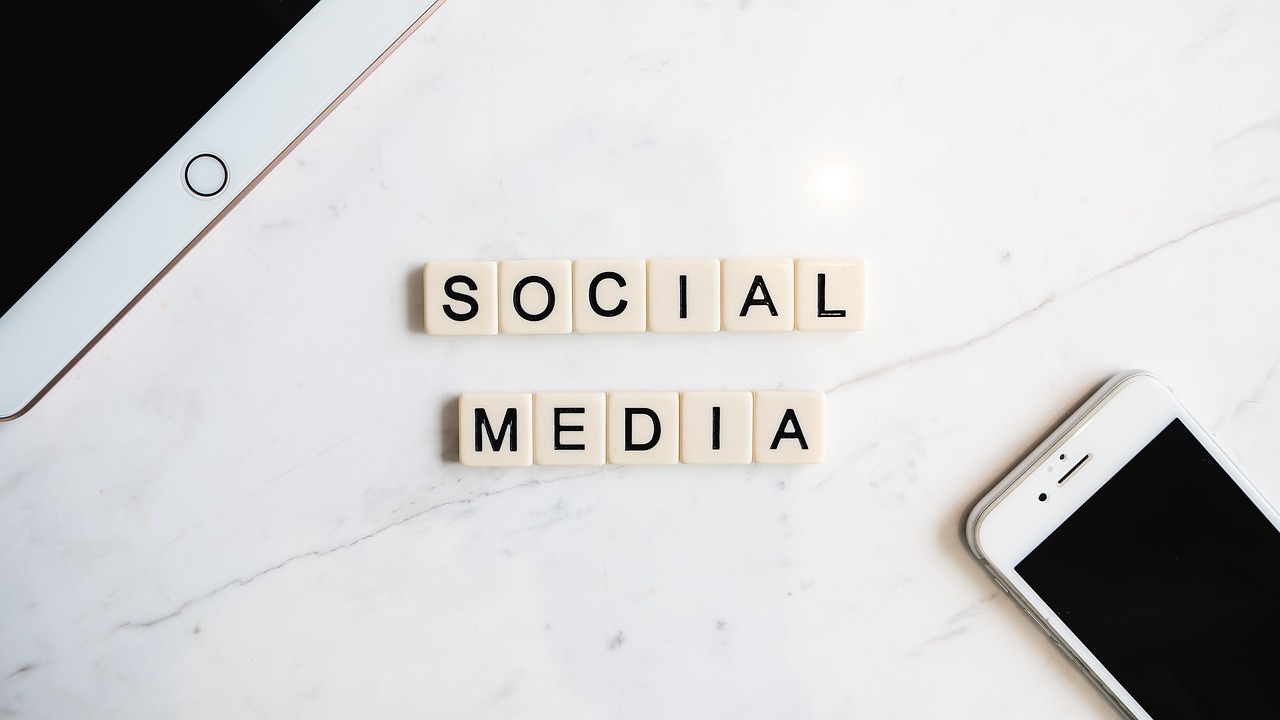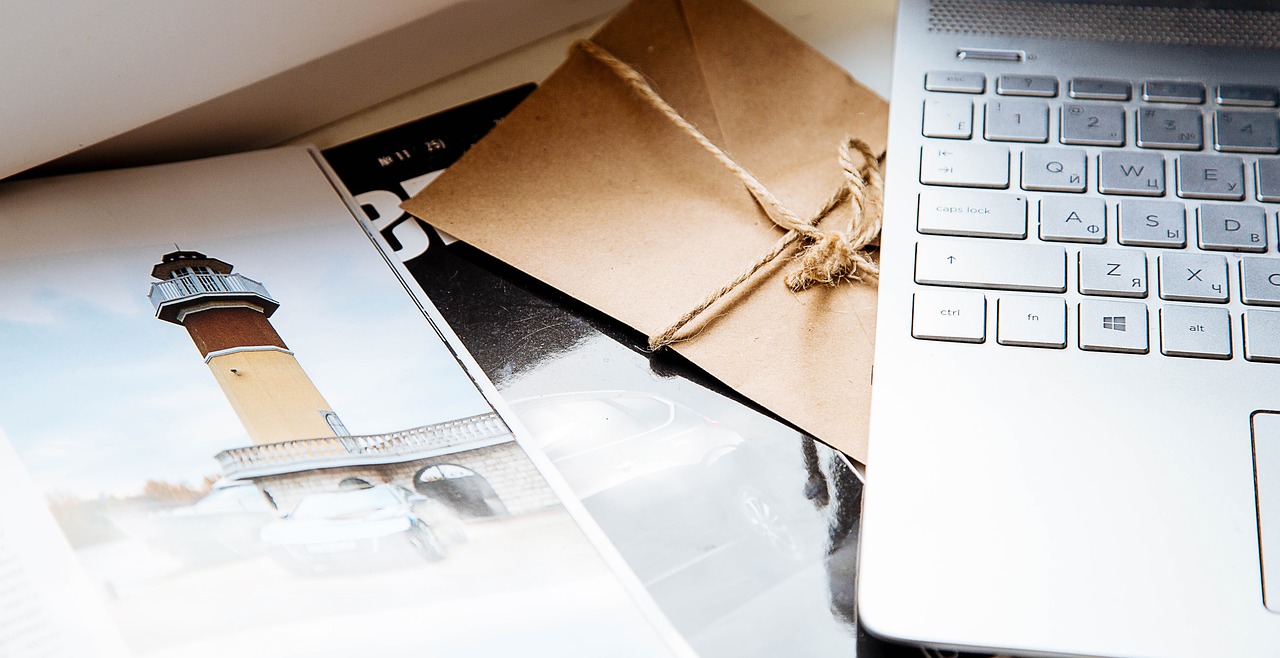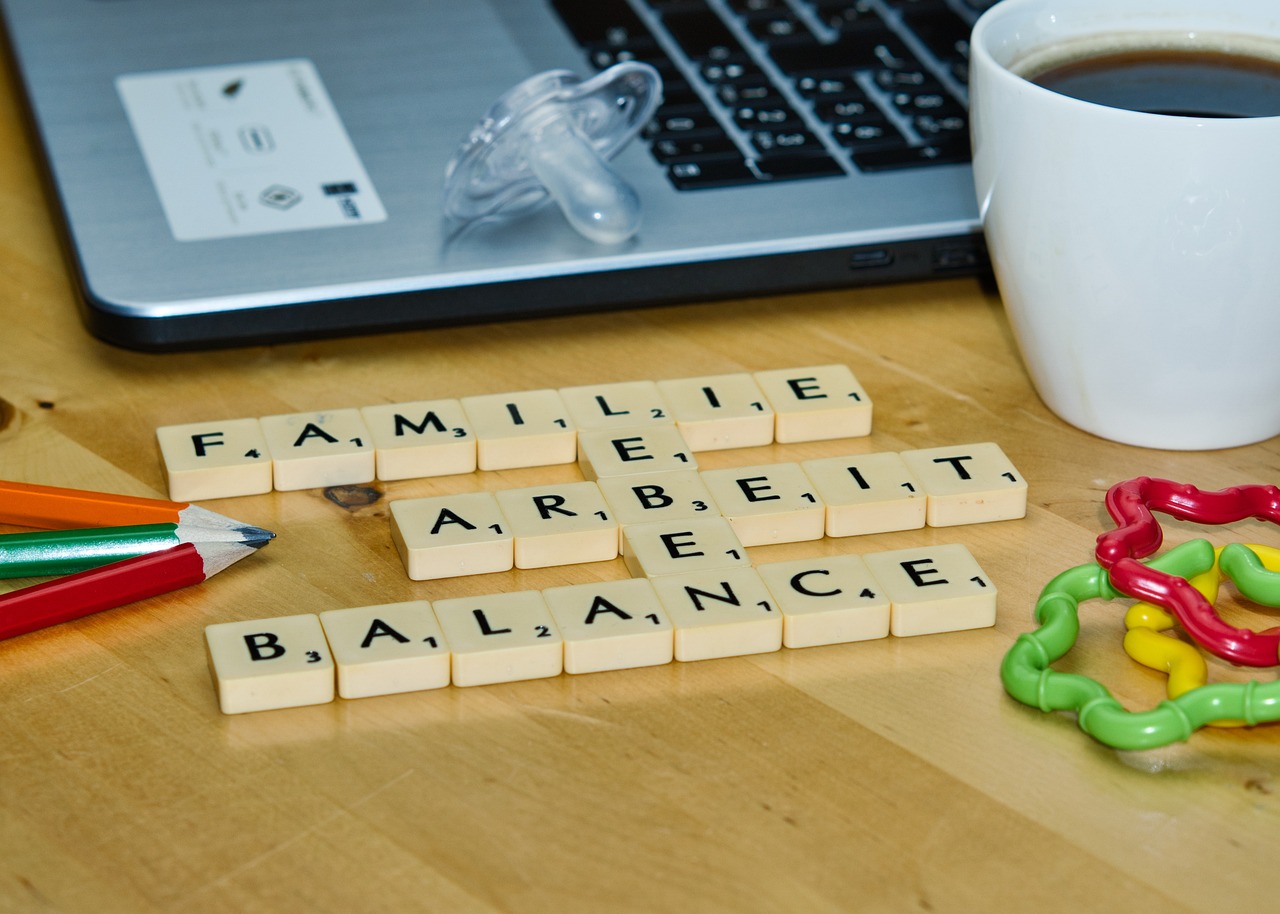How Social Media Can Ruin Your Work-Life Balance
In today’s fast-paced digital world, social media has become an integral part of our daily lives. While it offers numerous benefits, such as connectivity and access to information, it also poses significant challenges, particularly in maintaining a healthy work-life balance. The allure of social media can often lead us to prioritize online interactions over real-life responsibilities, creating a whirlwind of distractions that can derail our productivity and personal well-being.
Imagine this: you're sitting at your desk, ready to tackle that important project, and suddenly, your phone buzzes. It’s a notification from your favorite social media platform. Just a quick scroll, you think. But before you know it, an hour has slipped away, and that project is still untouched. This scenario is all too common and highlights the distraction dilemma that social media presents. With constant notifications and the endless scroll of content, it becomes increasingly difficult to maintain focus on the tasks at hand.
Moreover, the impact of social media extends beyond mere distractions; it can also take a toll on our mental health. The pressure to stay connected and updated can lead to feelings of anxiety and even depression. Research has shown a strong correlation between excessive social media use and work-related stress, contributing to a cycle of burnout that can feel inescapable. As we dive deeper into this article, we’ll explore how social media can exacerbate these issues, particularly through phenomena like FOMO (fear of missing out) and social comparison.
FOMO is a powerful driver of stress in the digital age. When we see our peers sharing highlights of their lives, it can create a sense of inadequacy that seeps into our professional lives. This pressure to keep up can lead to decreased job satisfaction and a lack of appreciation for our own achievements. Instead of celebrating our successes, we find ourselves caught in a cycle of comparison, which can diminish our self-esteem and overall happiness at work.
In addition to affecting our mental health, social media can complicate workplace relationships. The lines between personal and professional interactions can become blurred, leading to misunderstandings and miscommunication. It’s essential to recognize that while social media can facilitate connections, it can also create barriers. This article will further delve into the ways social media influences our work dynamics and how we can navigate these challenges effectively.
As we explore the impacts of social media on our work-life balance, it’s crucial to address time management issues that arise from its addictive nature. The temptation to check notifications or scroll through feeds can consume valuable work hours, leading to poor productivity. In the following sections, we will discuss the importance of setting boundaries and implementing digital detox strategies to reclaim our time and focus.
Ultimately, while social media can enhance our lives in many ways, it’s essential to strike a balance. By understanding its potential pitfalls and actively working to mitigate its effects, we can create a healthier relationship with technology that supports rather than hinders our work-life balance. So, let’s dive deeper into each of these aspects and uncover practical solutions to help you regain control over your time and mental well-being.
- How can social media affect my productivity at work? Social media can distract you from tasks, leading to decreased focus and efficiency. Notifications and the urge to check updates can pull your attention away from important work.
- What are some signs that social media is impacting my mental health? Signs include increased anxiety, feelings of inadequacy when comparing yourself to others, and a decline in job satisfaction.
- How can I set boundaries with social media during work hours? Consider scheduling specific times to check social media and turning off notifications during work hours to minimize distractions.
- What is a digital detox, and how can it help me? A digital detox involves taking a break from social media to recharge and refocus. It can improve your mental clarity and productivity when you return to work.

The Distraction Dilemma
In today's fast-paced world, social media platforms have become an integral part of our daily lives. However, they come with a significant downside: the distraction dilemma. Imagine sitting down at your desk, ready to tackle an important project, when suddenly, your phone buzzes with a notification from your favorite social media app. It’s like a siren call, pulling you away from your tasks and into a vortex of endless scrolling and notifications. This constant barrage of alerts can wreak havoc on your focus and productivity.
Research indicates that the average person checks their phone over 150 times a day. That’s a staggering number! Each time you pick up your phone, you risk losing precious minutes—or even hours—of productivity. When you consider the cumulative effect of these distractions, it becomes clear that social media can seriously derail your workday. You might think, "Just a quick scroll won't hurt," but before you know it, you've spent 30 minutes watching cat videos or catching up on the latest celebrity gossip.
Furthermore, the urge to engage with social media can be overwhelming. You might feel the need to respond to comments, post updates, or simply check what others are doing. This not only disrupts your workflow but also creates a cycle of distraction that can be hard to break. It’s like trying to concentrate in a loud, chaotic room while someone keeps turning the lights on and off. Your brain is constantly switching gears, making it nearly impossible to maintain focus on the task at hand.
In a typical work environment, distractions can lead to significant declines in productivity. Studies have shown that it can take up to 25 minutes to regain focus after an interruption. Think about that for a moment: if you’re interrupted multiple times a day, you could be losing several hours of productive work time! This is a serious issue, especially in a world where efficiency and performance are paramount.
To illustrate the impact of social media distractions, consider the following table that outlines the potential effects on productivity:
| Type of Distraction | Time Lost (per occurrence) | Estimated Daily Impact (based on 5 occurrences) |
|---|---|---|
| Social Media Notifications | 5-10 minutes | 25-50 minutes |
| Engaging with Posts | 15-20 minutes | 75-100 minutes |
| Checking Messages | 5 minutes | 25 minutes |
As you can see, even a few distractions can add up to a significant loss of productive time. So, what can we do about it? It all starts with awareness. Recognizing that social media is a double-edged sword is the first step in mitigating its negative effects on our work-life balance. By being mindful of how often we engage with these platforms during work hours, we can begin to take control of our productivity.
In conclusion, while social media can offer connectivity and entertainment, it's crucial to acknowledge its potential to disrupt our focus and productivity. By understanding the distraction dilemma and implementing strategies to minimize these interruptions, we can reclaim our time and enhance our work-life balance.

Impact on Mental Health
In today's fast-paced world, the pervasive use of social media is becoming a double-edged sword. While it offers a platform for connection and communication, it can also lead to significant mental health challenges. Studies have shown that the constant engagement with social media can lead to increased levels of anxiety and depression. The very platforms designed to keep us connected can sometimes make us feel more isolated than ever. It's as if we are surrounded by a crowd yet feel utterly alone.
One of the most concerning aspects of social media's impact on mental health is its correlation with work-related stress. Imagine trying to focus on a project when your phone buzzes with notifications every few minutes. This constant interruption can create a feeling of being overwhelmed, making it difficult to concentrate on important tasks. The more we allow social media to invade our workspaces, the more we risk our mental well-being.
The term FOMO, or fear of missing out, has become a common phrase in our digital age. It's that nagging feeling that everyone else is having a great time without you. Social media feeds are often filled with curated highlights of people's lives, leading to unrealistic comparisons and heightened stress levels. When you're constantly bombarded with images of friends at parties or colleagues achieving milestones, it's easy to feel inadequate. This sense of missing out can exacerbate feelings of stress and anxiety, ultimately affecting workplace performance.
Social media platforms are breeding grounds for social comparison. When scrolling through our feeds, we often find ourselves comparing our lives to the seemingly perfect lives of others. This can lead to a decline in self-esteem and an increase in feelings of dissatisfaction. When you see a colleague's promotion or a friend's vacation photos, it can be hard not to feel like you're falling behind. This constant comparison can create a toxic cycle of negativity that seeps into our work lives, impacting our motivation and job satisfaction.
Excessive use of social media can also contribute to reduced job satisfaction. When employees are distracted by their online lives, they may fail to appreciate their work environment and the achievements they have made. It's like trying to enjoy a delicious meal while being distracted by a loud television. Instead of savoring the moment, the focus is lost, and the experience becomes less fulfilling. When employees are unable to disconnect from their social media accounts, they often miss out on the joys and accomplishments of their day-to-day work life.
Moreover, social media can complicate professional relationships. The lines between personal and professional interactions can become blurred, leading to misunderstandings and conflicts. Imagine a scenario where a colleague posts a personal opinion on a controversial topic, and it sparks debates among coworkers. Such situations can create tension and disrupt the harmony of the workplace. Maintaining clear boundaries is essential to ensure that social media does not negatively impact workplace communication.
In conclusion, while social media can be a powerful tool for connection, its impact on mental health is undeniable. The distractions, comparisons, and pressures it brings can lead to increased levels of anxiety, decreased job satisfaction, and strained workplace relationships. Recognizing these challenges is the first step toward mitigating their effects and reclaiming a healthier work-life balance.
- How can social media lead to anxiety?
Social media can lead to anxiety by creating unrealistic expectations and constant comparisons with others, which can make individuals feel inadequate. - What is FOMO, and how does it affect mental health?
FOMO is the fear of missing out, which can increase stress levels and feelings of inadequacy, negatively impacting mental health. - How can I set boundaries with social media at work?
Setting boundaries can be achieved by scheduling specific times to check social media, turning off notifications during work hours, and prioritizing face-to-face interactions. - What are some digital detox strategies?
Digital detox strategies include taking breaks from social media, engaging in offline activities, and practicing mindfulness to improve overall well-being.

FOMO and Its Consequences
The term FOMO, or "Fear of Missing Out," has become a buzzword in our digital age, and it’s not just a passing trend. It’s a feeling that many of us experience, often triggered by social media. Imagine scrolling through your feed and seeing friends at a party you weren’t invited to, or colleagues sharing their latest achievements while you’re stuck in a meeting. This constant exposure can create a nagging sense of inadequacy, leaving you to wonder, “Am I missing out on something important?”
FOMO can have profound effects on our mental well-being, leading to increased stress levels and a sense of disconnection from our own lives. It’s like being on a treadmill that never stops; you’re running, but you’re not really getting anywhere. This anxiety can spill over into the workplace, affecting your productivity and overall job satisfaction. When your mind is preoccupied with what others are doing, it becomes increasingly challenging to focus on your own tasks.
Furthermore, the consequences of FOMO don’t just stop at personal feelings. They can also influence professional dynamics. For instance, employees may feel pressured to engage in after-work social events or online networking, fearing they’ll fall behind if they don’t. This can lead to a vicious cycle where you’re constantly trying to catch up, ultimately resulting in burnout. The irony is that while social media is designed to connect us, it can leave us feeling more isolated than ever.
To illustrate the impact of FOMO, consider the following table that highlights some common emotional responses associated with this phenomenon:
| Emotional Response | Description |
|---|---|
| Anxiety | A constant worry about missing out on events or opportunities. |
| Inadequacy | Feeling less than others due to perceived social successes. |
| Loneliness | A sense of isolation despite being connected online. |
| Burnout | Exhaustion from trying to keep up with social expectations. |
So, what can be done to combat FOMO and its negative consequences? First, it’s essential to recognize that social media often presents a curated version of reality. People tend to share only their highlights, making it easy to forget that everyone has struggles behind the scenes. Acknowledging this can help shift your perspective and reduce feelings of inadequacy.
Additionally, consider taking a step back from social media. A digital detox, even just for a few hours a day, can help you reconnect with your immediate surroundings and appreciate what you have. Instead of focusing on what others are doing, try to engage in activities that bring you joy and fulfillment. This can lead to improved mental health, greater job satisfaction, and a more balanced work-life dynamic.
Ultimately, FOMO is a natural response in our hyper-connected world, but it doesn’t have to control your life. By understanding its consequences and taking proactive steps, you can reclaim your time, focus, and happiness both in and out of the workplace.
- What is FOMO? FOMO stands for "Fear of Missing Out," and it refers to the anxiety that one might be missing out on rewarding experiences that others are having.
- How does FOMO affect mental health? FOMO can lead to feelings of anxiety, inadequacy, and loneliness, which can negatively impact mental health and job satisfaction.
- What are some ways to combat FOMO? Acknowledging that social media often showcases a curated reality, engaging in fulfilling activities, and taking breaks from social media can help mitigate FOMO.

Social Comparison
In today's digital age, social media platforms are like double-edged swords. While they connect us with friends and provide entertainment, they also foster an environment ripe for . When scrolling through our feeds, we often find ourselves bombarded with images of friends' vacations, colleagues' promotions, and influencers' seemingly perfect lives. This constant influx of curated content can lead to a detrimental cycle of self-evaluation and comparison.
Have you ever caught yourself thinking, "Why can’t I have a life like that?" or "Am I not working hard enough?" These thoughts are not uncommon. Social comparison can create feelings of inadequacy and self-doubt, especially when we measure our worth against the highlight reels of others. This phenomenon is particularly pronounced in a work context, where the pressure to excel is already high. Here’s how social comparison can manifest:
- Increased Anxiety: Constantly comparing ourselves to others can lead to heightened anxiety levels, as we feel the need to keep up with the pace set by our peers.
- Lower Self-Esteem: Seeing others succeed can diminish our self-worth, making us question our abilities and contributions.
- Workplace Rivalry: Instead of fostering collaboration, social comparison can breed competition, which may ultimately disrupt team dynamics.
Moreover, the impact of social comparison extends beyond individual feelings; it can also affect overall job satisfaction. When employees focus on what others are achieving rather than appreciating their own successes, they may become disengaged and less motivated. This can lead to a toxic environment where everyone is vying for recognition rather than working together towards common goals.
To combat the negative effects of social comparison, it’s essential to cultivate a mindset of self-acceptance. Here are a few strategies to consider:
- Limit Social Media Exposure: Consider setting specific times to check social media, reducing the chances of constant comparison throughout the day.
- Focus on Personal Goals: Shift your attention from others to your own achievements and progress. Celebrate your milestones, no matter how small.
- Curate Your Feed: Follow accounts that inspire and uplift you, rather than those that trigger feelings of inadequacy.
Ultimately, recognizing that everyone has their unique journey can help mitigate the harms of social comparison. By focusing on our individual paths, we can foster a healthier work environment and improve our overall mental well-being.
Q: How can I reduce the impact of social comparison on my mental health?
A: Start by limiting your social media use, focusing on your personal goals, and curating your feed to include positive influences.
Q: Can social comparison ever be beneficial?
A: In moderation, social comparison can motivate individuals to improve and strive for their goals, but it’s important to maintain a healthy perspective.
Q: What are some signs that social comparison is affecting my work performance?
A: Signs include increased anxiety, decreased job satisfaction, and a lack of motivation to engage with your work or colleagues.

Reduced Job Satisfaction
In today’s fast-paced world, where social media dominates our daily interactions, it’s no surprise that many employees find their job satisfaction dwindling. The constant barrage of notifications, updates, and the urge to stay connected can create an environment where work becomes just another item on a long list of distractions. When employees are preoccupied with their social media feeds, they often fail to appreciate the meaningful aspects of their work, leading to a sense of disengagement.
The phenomenon of can be attributed to several factors, particularly the overwhelming presence of social media in our lives. When workers are constantly checking their phones or scrolling through feeds during work hours, they miss out on crucial moments of connection with their colleagues and the tasks at hand. This can create a disconnect between their professional responsibilities and personal interests, ultimately resulting in a lack of fulfillment.
Moreover, excessive engagement with social media can distort an employee’s perception of their job. For instance, seeing peers post about exciting projects or achievements can lead to feelings of inadequacy or envy. This social comparison can be detrimental, as it may cause individuals to undervalue their own contributions and accomplishments. The reality is that social media often presents a highly curated version of life, which can skew our understanding of what success and satisfaction truly look like in the workplace.
To illustrate this point, consider the following table that outlines the key factors contributing to reduced job satisfaction due to social media:
| Factor | Description |
|---|---|
| Distraction | Frequent social media checks divert attention from work tasks. |
| Social Comparison | Employees feel inadequate when comparing their lives to others online. |
| Reduced Focus | Constant notifications disrupt workflow and concentration. |
| Neglected Relationships | Online interactions can overshadow meaningful in-person connections. |
Interestingly, the cycle of reduced job satisfaction often feeds back into itself. When employees feel less satisfied with their jobs, they may turn to social media as a form of escape or validation, further perpetuating the issue. This creates a vicious cycle where social media becomes a crutch rather than a tool, leading to decreased productivity and overall workplace morale.
To combat this issue, it's essential for both employees and employers to recognize the impact of social media on job satisfaction. Employers can foster a healthier work environment by encouraging employees to take regular breaks from social media during work hours. Additionally, promoting open communication and team-building activities can help employees reconnect with their roles and colleagues, enhancing their overall job satisfaction.
In conclusion, while social media can be a valuable tool for connection and information, it also poses significant challenges to job satisfaction. By understanding these challenges and implementing strategies to mitigate their impact, employees can rediscover the joy and fulfillment that comes from their work, ultimately leading to a more productive and satisfying professional life.
- How does social media affect productivity at work? Social media can serve as a significant distraction, pulling attention away from important tasks and reducing overall efficiency.
- What are some signs of reduced job satisfaction? Signs may include decreased motivation, increased absenteeism, feelings of inadequacy, and a lack of enthusiasm for work-related tasks.
- How can I improve my work-life balance? Setting clear boundaries for social media use, prioritizing tasks, and taking regular breaks can help enhance your work-life balance.
- What strategies can help combat social media distractions? Consider implementing a social media detox during work hours, using apps to limit usage, or setting specific times for checking social media.

Workplace Relationships
In today’s digital age, social media has become an integral part of our lives, but it can also complicate our . Imagine walking into the office, and instead of exchanging friendly greetings, your colleagues are glued to their screens, scrolling through their feeds. This scenario is becoming all too common, and it raises a critical question: Are we losing the human touch at work? The answer is often a resounding yes. Social media can blur the lines between professional and personal interactions, leading to misunderstandings and conflicts.
One of the biggest issues is that social media can create miscommunication. When conversations shift from face-to-face to online platforms, the nuances of tone and body language are often lost. A simple comment can be misinterpreted, leading to unnecessary tension among colleagues. Furthermore, the constant presence of social media can lead to a lack of focus during meetings, where people might be more engaged with their devices than with their peers. This behavior can foster feelings of isolation and resentment, as employees feel undervalued when their contributions are overlooked in favor of social media interactions.
Moreover, social media can lead to the phenomenon known as social media envy. When employees see their peers posting about promotions, accolades, or even just fun outings, it can create a sense of inadequacy. This feeling can negatively affect team dynamics, as individuals may start to compete rather than collaborate. Instead of fostering a supportive environment, social media can inadvertently promote a culture of comparison, where employees feel pressured to outshine one another rather than work together towards common goals.
To mitigate these issues, it’s essential to establish clear boundaries regarding social media use in the workplace. Employers can encourage open discussions about the impact of social media on team dynamics and promote a culture that values direct communication. For instance, consider implementing social media guidelines that outline acceptable online behavior, especially regarding interactions with colleagues. This can help create a more cohesive work environment where everyone feels respected and valued.
In summary, while social media can offer a platform for connection, it is crucial to recognize its potential to disrupt workplace relationships. By fostering open communication and setting clear boundaries, organizations can ensure that social media serves as a tool for collaboration rather than a source of division.
- How can social media affect team dynamics?
Social media can create miscommunication and competition among team members, leading to tension and a lack of collaboration. - What are some strategies to improve workplace relationships?
Establishing clear communication guidelines and encouraging face-to-face interactions can help improve workplace relationships. - Can social media be beneficial in the workplace?
Yes, when used appropriately, social media can enhance communication and foster connections among colleagues.

Time Management Issues
The addictive nature of social media has become a double-edged sword for many professionals. On one hand, it offers a platform for connectivity and networking; on the other, it can be a significant time sink that disrupts our daily productivity. Have you ever found yourself scrolling through your feed, only to realize that an hour has slipped away? This phenomenon is not just a personal experience; it's a widespread issue that affects countless individuals in the workplace. Social media can transform into a black hole of time, consuming the hours that could have been spent on productive tasks.
One of the biggest challenges posed by social media is its ability to create a false sense of urgency. Notifications pinging on our devices can feel like a call to action, pulling us away from our primary responsibilities. This constant interruption can lead to what psychologists term "task-switching," where the brain struggles to refocus on the original task after being distracted. In fact, research shows that it can take up to 23 minutes to regain focus after a distraction. Imagine trying to finish a report or prepare for a presentation while your phone buzzes with updates from various social media platforms. The struggle is real!
Moreover, the *FOMO* (Fear of Missing Out) phenomenon exacerbates these time management issues. As we scroll through curated lives and highlight reels, we feel compelled to stay updated, fearing that we might miss something important. This constant need to check in can lead to a cycle of procrastination, where we prioritize social media over essential work tasks. The irony is that while we think we're staying connected, we're actually disconnecting from our work and responsibilities.
To illustrate the impact of social media on time management, consider the following table, which breaks down the average time spent on social media versus productive work hours:
| Activity | Average Time Spent (per day) |
|---|---|
| Social Media Scrolling | 2-3 hours |
| Work-Related Tasks | 6-8 hours |
| Meetings | 1-2 hours |
| Breaks | 1 hour |
As you can see, the time allocated to social media can significantly cut into our work hours, leaving less time for actual productivity. So, how can we combat these time management issues? Establishing clear boundaries is essential. By setting specific times for social media use—perhaps during lunch breaks or after work hours—we can significantly reduce distractions. Additionally, utilizing apps that limit social media access during work hours can help reinforce these boundaries.
Another effective strategy is to implement the *Pomodoro Technique*, where you work in focused bursts followed by short breaks. During those breaks, you can indulge in a quick scroll through your social media feeds without letting it encroach on your work time. This method not only enhances focus but also allows for guilt-free social media engagement.
In conclusion, while social media can offer valuable connections and information, it is crucial to recognize its potential to disrupt our time management. By being proactive and setting boundaries, we can reclaim our time and enhance our productivity at work. Remember, it’s all about finding a balance that works for you!
- How can I limit my social media usage during work hours? Consider using apps that block social media during designated work times or set specific time limits for checking your accounts.
- What are the signs that social media is affecting my productivity? If you find yourself frequently distracted, unable to complete tasks, or feeling guilty about your time spent online, it may be time to reassess your social media habits.
- Can taking breaks from social media improve my work-life balance? Absolutely! Taking breaks can help you refocus and recharge, ultimately enhancing both your mental well-being and productivity.

Setting Boundaries
In today's hyper-connected world, between work and personal life is more crucial than ever. The constant ping of notifications and the allure of social media can easily blur the lines, leading to a chaotic blend of professional obligations and personal distractions. Imagine trying to concentrate on an important project while your phone buzzes incessantly with updates from your social media feeds. It’s like trying to read a book in a crowded café—almost impossible! To regain control, you need to establish clear boundaries that safeguard your productivity and mental health.
One effective strategy is to designate specific times for checking social media. For instance, you could allocate a few minutes during your lunch break or right after work to catch up on your feeds. This way, you can enjoy your online interactions without letting them seep into your work hours. Additionally, consider turning off notifications during work hours. By silencing those constant alerts, you can create a focused environment that allows you to immerse yourself in your tasks without the constant pull of social media.
Another essential aspect of setting boundaries is communicating your limits to colleagues and friends. Let them know when you will be available for social interactions and when you need to focus on work. This not only helps you maintain your productivity but also fosters a culture of respect for personal time within your workplace. Remember, it’s perfectly okay to say no to social invites during work hours or to step back from online engagements when you need to concentrate.
Lastly, consider creating a dedicated workspace where you can separate your professional and personal life. Whether it’s a home office or a specific area in your living space, having a designated spot for work can help reinforce the boundaries you’ve set. When you’re in that space, you’re in “work mode,” and when you step away, it’s time to disconnect and recharge. Think of it as a mental switch that you can turn on and off, helping you maintain a healthier work-life balance.
By implementing these strategies, you can cultivate a more productive work environment while still enjoying the benefits of social media. Remember, it’s all about finding the right balance that works for you!
- How can I effectively set boundaries with social media? Start by designating specific times for checking social media, turning off notifications during work hours, and communicating your limits to others.
- Why is it important to separate work and personal life? Separating the two helps improve productivity, reduces stress, and enhances your overall well-being.
- What are some signs that I need to set better boundaries? If you find yourself constantly distracted by social media during work hours or feeling overwhelmed, it may be time to reassess your boundaries.

Digital Detox Strategies
In today's hyper-connected world, taking a step back from social media can feel like an impossible task. However, implementing effective can significantly enhance your work-life balance and overall well-being. The first step is to acknowledge the need for a break. Just like a phone needs to be charged, our minds need to recharge too. Here are some practical strategies to help you unplug:
Start by setting specific time limits for your social media usage. For example, you might decide to check your accounts only during lunch breaks or after work hours. This will help you to become more mindful of your online presence and prevent mindless scrolling that eats away at your productivity. You can use apps that track your screen time and even block access to social media during work hours. By creating these boundaries, you’ll find it easier to focus on your tasks at hand.
Another effective strategy is to designate social media-free zones in your life. Consider making your workspace a tech-free zone where the only distractions are your work-related tools. This could mean leaving your phone in another room or using physical notes instead of digital reminders. By doing this, you not only increase your productivity but also create a healthier mental space for creativity and focus.
Moreover, consider scheduling digital detox days. This means picking one day a week where you completely unplug from all social media platforms. Use this time to engage in activities that rejuvenate you, such as reading a book, going for a hike, or spending quality time with loved ones. These activities can serve as a reminder of the joy found outside of the digital world, helping to reduce the urge to constantly check your devices.
Lastly, practicing mindfulness can be a game-changer. Incorporating techniques like meditation or deep-breathing exercises can help you become more aware of your social media habits and their effects on your mood and productivity. When you feel the urge to scroll, take a moment to pause and reflect on whether it’s truly beneficial or just a habit. This awareness can empower you to make better choices about your online interactions.
In conclusion, a digital detox doesn’t have to be a daunting task. By setting limits, creating tech-free zones, scheduling detox days, and practicing mindfulness, you can reclaim your time and improve your work-life balance. Remember, it’s all about finding what works best for you and making a conscious effort to prioritize your mental health. So, why not give it a try? Your mind (and your productivity) will thank you!
- What is a digital detox? A digital detox involves taking a break from digital devices, particularly social media, to improve mental health and productivity.
- How long should a digital detox last? The duration can vary; some people choose to detox for a day, while others may opt for a week or even longer. It’s important to find a timeframe that works for you.
- Will I miss out on important updates during a digital detox? While you may miss some updates, prioritizing your mental health can help you return to social media with a clearer mind and a more focused perspective.
- Can I still use my phone during a digital detox? Yes, you can still use your phone for non-social media purposes, such as reading or listening to music, but try to limit your use of social media apps.
Frequently Asked Questions
- How does social media distract employees at work?
Social media can be a significant distraction due to constant notifications and the urge to scroll through feeds. This can lead to interruptions in focus, making it difficult for employees to complete tasks efficiently.
- What are the mental health effects of excessive social media use?
Excessive use of social media can lead to increased anxiety and depression. The constant exposure to curated lives can cause feelings of inadequacy and stress, which can ultimately impact work performance and overall mental well-being.
- How does FOMO affect workplace productivity?
Fear of missing out (FOMO) can create a sense of urgency to stay connected online, leading to distractions during work hours. This can result in decreased productivity and heightened stress levels as employees feel pressured to keep up with social media trends.
- Can social comparison on social media impact job satisfaction?
Yes, social comparison can negatively affect self-esteem and job satisfaction. When employees compare themselves to others online, they may feel less accomplished or valued, which can diminish their appreciation for their own work and achievements.
- What are some effective strategies for setting boundaries with social media?
To set boundaries, employees can establish specific times for checking social media, use productivity apps to limit access during work hours, and communicate their boundaries with colleagues to minimize interruptions.
- What is a digital detox, and how can it help?
A digital detox involves taking a break from social media and digital devices to restore balance. This practice can help improve focus, reduce stress, and enhance overall well-being, making it easier to engage fully in work and personal life.



















